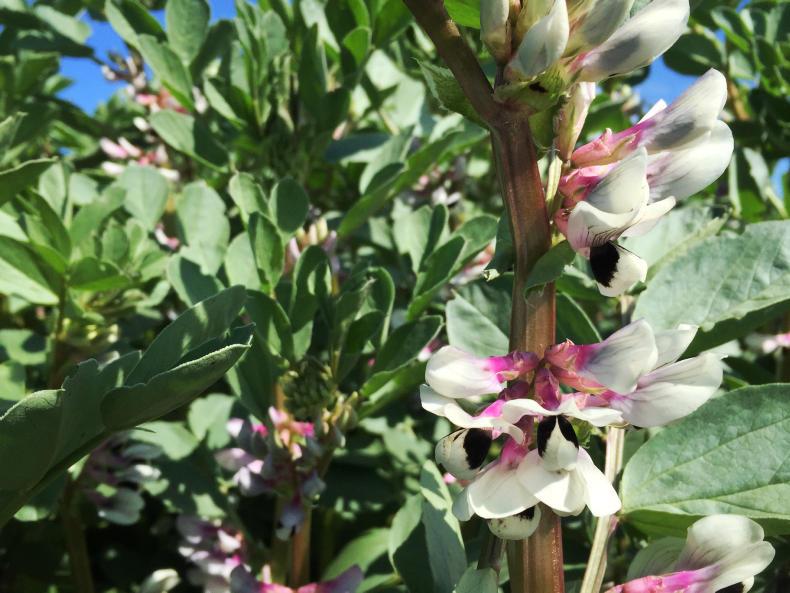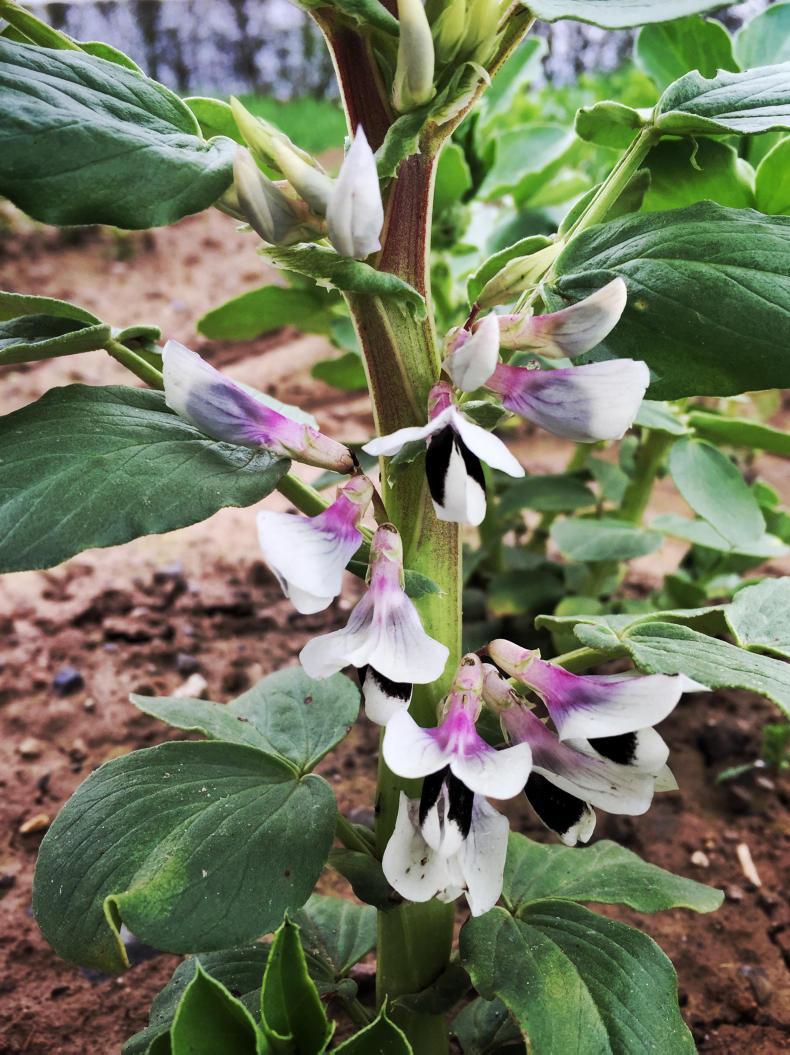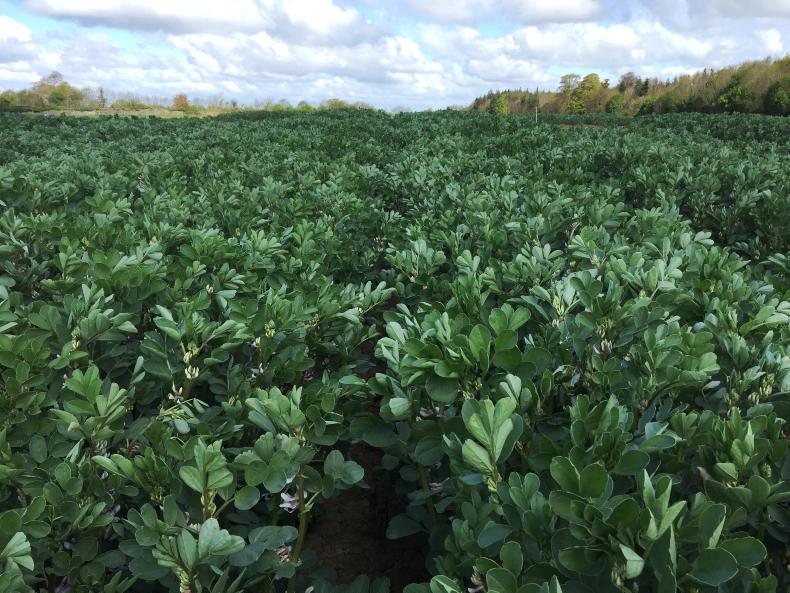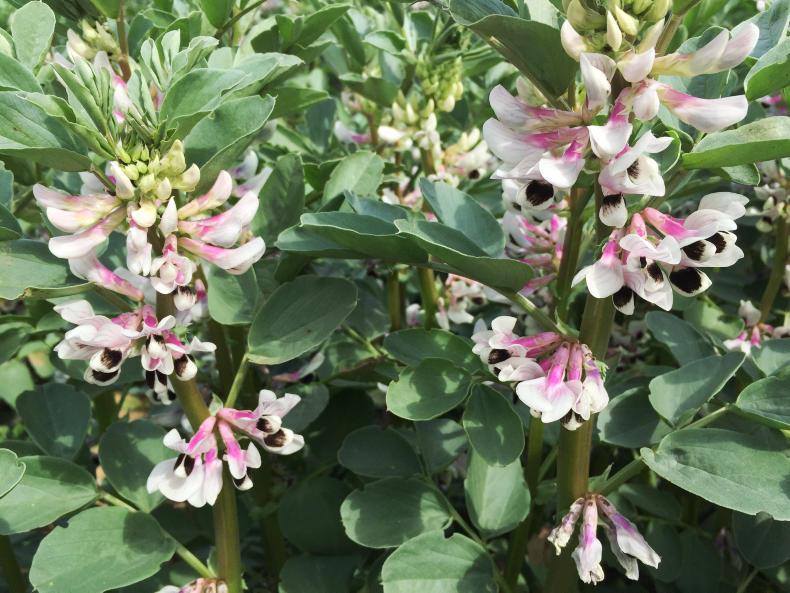Since the 1980s, crop production has become more specialised, leading to a disappearance of grass from most tillage farms and hence a decline in the use of rotations.
This led to a situation where just 9.6% of the arable area was under a break crop in 2013.
While soil organic matters are still reasonable, lack of rotation has negatively affected cereal yields and production costs.
 The 2012 Tillage Sector Development Plan, produced by Teagasc crop stakeholders, recognised the need for break crops and also for the protein deficit to be addressed.
The 2012 Tillage Sector Development Plan, produced by Teagasc crop stakeholders, recognised the need for break crops and also for the protein deficit to be addressed.
In response, Teagasc Oak Park initiated several research projects addressing this deficit, including a desk study evaluating crop options (CropQuest), an oilseed rape programme including crop establishment and disease control, an oats programme and an Irish Farmers Association grain levy-supported break crop agronomy programme.
With over 10,000ha of beans grown on Irish farms in each of the past three years, it is clear that farmers are beginning to see the benefits of including beans as a non-cereal break crop in their rotations.
While the area grown has increased dramatically, our agronomic and physiological knowledge is still somewhat limited.
To address this, the break crop agronomy programme has been expanded to encompass numerous research projects, some of which will be on display at the Crops and Cultivation open day.

Break crop benefits in terms of disease/weed control, soil structure, nutrients, environmental factors and, of course, yield have been widely documented and were the subject of a literature review in the Department of Agriculture, Research Stimulus Funded (DAFM RSF), CropQuest project.
Through this project, detailed crop reports for each of the relevant break crops have been composed, documenting key points, agronomy, husbandry, markets and economics and these reports are available on the CropQuest website (www.teagasc.ie/crops/crops/research/research-programme/cropquest/).
Currently, there is limited understanding of the factors that influence growth and development of beans in Ireland.
Walsh Fellowship
A new Walsh Fellowship project with University of Nottingham has been started which will focus on studying the size and structure of the developing crop canopy, the interception and absorption of radiation by the canopy and the partitioning of dry matter to the different parts of the crop.
At the Crops and Cultivation open day, a trial from this project, which looks to determine the effect of sowing date (six dates from October to April) and seed rates (ranging from 10 to 80 seeds/m2) on crop physiology, will be on display.
This project aims to provide a better understanding of bean growth and development in the Irish climate and allow yield to be improved, optimised and stabilised by adopting the appropriate agronomic techniques.

A DAFM RSF project entitled Optimising Production Technology in Ireland for Break Crops (OPTI-BC) has recently started.
As part of this project, a survey of both bean and OSR crops spread throughout the main cereal areas of Ireland, which aims to determine the key factors which impact on break crop production, is being conducted.
Field trials in conjunction with University College Dublin looking at the impact of cultivation system and sowing date on the establishment, root development and growth of field beans in a temperate climate are also taking place.
Breeding of beans for Irish conditions has not been conducted since the closure of the UCD faba bean breeding programme in the 1980s and the lack of suitable varieties has limited the amount of beans grown in Ireland.
As part of the DAFM RSF Virtual Irish Centre for Crop Improvements (VICCI) project, a task focussing on breeding for disease and yield in Irish conditions has recently started in conjunction with University of Reading.
The early progress from this task, which aims to develop appropriate breeding methods and study response to selection for faba bean in Irish conditions, will also be presented at the open day.
With weed control being a difficulty in many bean crops, a herbicide trial with 15 products/combinations will also be on display.
Details of further trials will also be presented and Teagasc researchers and advisers will be available for discussion.
These include winter and spring variety trials with some promising new varieties, rhizobium seed treatment looking at root nodulation, a fungicide timing trial focussing on chocolate spot control, a fungicide product comparison, a flowering control and a trace element trial.
Read more
Focus supplement: Crops and cultivation
Since the 1980s, crop production has become more specialised, leading to a disappearance of grass from most tillage farms and hence a decline in the use of rotations.
This led to a situation where just 9.6% of the arable area was under a break crop in 2013.
While soil organic matters are still reasonable, lack of rotation has negatively affected cereal yields and production costs.
 The 2012 Tillage Sector Development Plan, produced by Teagasc crop stakeholders, recognised the need for break crops and also for the protein deficit to be addressed.
The 2012 Tillage Sector Development Plan, produced by Teagasc crop stakeholders, recognised the need for break crops and also for the protein deficit to be addressed.
In response, Teagasc Oak Park initiated several research projects addressing this deficit, including a desk study evaluating crop options (CropQuest), an oilseed rape programme including crop establishment and disease control, an oats programme and an Irish Farmers Association grain levy-supported break crop agronomy programme.
With over 10,000ha of beans grown on Irish farms in each of the past three years, it is clear that farmers are beginning to see the benefits of including beans as a non-cereal break crop in their rotations.
While the area grown has increased dramatically, our agronomic and physiological knowledge is still somewhat limited.
To address this, the break crop agronomy programme has been expanded to encompass numerous research projects, some of which will be on display at the Crops and Cultivation open day.

Break crop benefits in terms of disease/weed control, soil structure, nutrients, environmental factors and, of course, yield have been widely documented and were the subject of a literature review in the Department of Agriculture, Research Stimulus Funded (DAFM RSF), CropQuest project.
Through this project, detailed crop reports for each of the relevant break crops have been composed, documenting key points, agronomy, husbandry, markets and economics and these reports are available on the CropQuest website (www.teagasc.ie/crops/crops/research/research-programme/cropquest/).
Currently, there is limited understanding of the factors that influence growth and development of beans in Ireland.
Walsh Fellowship
A new Walsh Fellowship project with University of Nottingham has been started which will focus on studying the size and structure of the developing crop canopy, the interception and absorption of radiation by the canopy and the partitioning of dry matter to the different parts of the crop.
At the Crops and Cultivation open day, a trial from this project, which looks to determine the effect of sowing date (six dates from October to April) and seed rates (ranging from 10 to 80 seeds/m2) on crop physiology, will be on display.
This project aims to provide a better understanding of bean growth and development in the Irish climate and allow yield to be improved, optimised and stabilised by adopting the appropriate agronomic techniques.

A DAFM RSF project entitled Optimising Production Technology in Ireland for Break Crops (OPTI-BC) has recently started.
As part of this project, a survey of both bean and OSR crops spread throughout the main cereal areas of Ireland, which aims to determine the key factors which impact on break crop production, is being conducted.
Field trials in conjunction with University College Dublin looking at the impact of cultivation system and sowing date on the establishment, root development and growth of field beans in a temperate climate are also taking place.
Breeding of beans for Irish conditions has not been conducted since the closure of the UCD faba bean breeding programme in the 1980s and the lack of suitable varieties has limited the amount of beans grown in Ireland.
As part of the DAFM RSF Virtual Irish Centre for Crop Improvements (VICCI) project, a task focussing on breeding for disease and yield in Irish conditions has recently started in conjunction with University of Reading.
The early progress from this task, which aims to develop appropriate breeding methods and study response to selection for faba bean in Irish conditions, will also be presented at the open day.
With weed control being a difficulty in many bean crops, a herbicide trial with 15 products/combinations will also be on display.
Details of further trials will also be presented and Teagasc researchers and advisers will be available for discussion.
These include winter and spring variety trials with some promising new varieties, rhizobium seed treatment looking at root nodulation, a fungicide timing trial focussing on chocolate spot control, a fungicide product comparison, a flowering control and a trace element trial.
Read more
Focus supplement: Crops and cultivation
 The 2012 Tillage Sector Development Plan, produced by Teagasc crop stakeholders, recognised the need for break crops and also for the protein deficit to be addressed.
The 2012 Tillage Sector Development Plan, produced by Teagasc crop stakeholders, recognised the need for break crops and also for the protein deficit to be addressed. 







 This is a subscriber-only article
This is a subscriber-only article













SHARING OPTIONS: